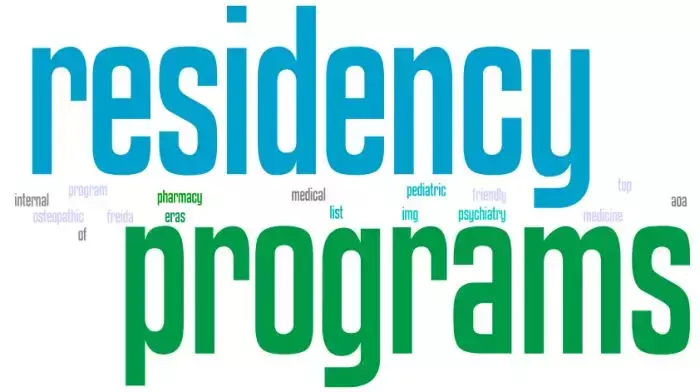- Home
- Medical news & Guidelines
- Anesthesiology
- Cardiology and CTVS
- Critical Care
- Dentistry
- Dermatology
- Diabetes and Endocrinology
- ENT
- Gastroenterology
- Medicine
- Nephrology
- Neurology
- Obstretics-Gynaecology
- Oncology
- Ophthalmology
- Orthopaedics
- Pediatrics-Neonatology
- Psychiatry
- Pulmonology
- Radiology
- Surgery
- Urology
- Laboratory Medicine
- Diet
- Nursing
- Paramedical
- Physiotherapy
- Health news
- Fact Check
- Bone Health Fact Check
- Brain Health Fact Check
- Cancer Related Fact Check
- Child Care Fact Check
- Dental and oral health fact check
- Diabetes and metabolic health fact check
- Diet and Nutrition Fact Check
- Eye and ENT Care Fact Check
- Fitness fact check
- Gut health fact check
- Heart health fact check
- Kidney health fact check
- Medical education fact check
- Men's health fact check
- Respiratory fact check
- Skin and hair care fact check
- Vaccine and Immunization fact check
- Women's health fact check
- AYUSH
- State News
- Andaman and Nicobar Islands
- Andhra Pradesh
- Arunachal Pradesh
- Assam
- Bihar
- Chandigarh
- Chattisgarh
- Dadra and Nagar Haveli
- Daman and Diu
- Delhi
- Goa
- Gujarat
- Haryana
- Himachal Pradesh
- Jammu & Kashmir
- Jharkhand
- Karnataka
- Kerala
- Ladakh
- Lakshadweep
- Madhya Pradesh
- Maharashtra
- Manipur
- Meghalaya
- Mizoram
- Nagaland
- Odisha
- Puducherry
- Punjab
- Rajasthan
- Sikkim
- Tamil Nadu
- Telangana
- Tripura
- Uttar Pradesh
- Uttrakhand
- West Bengal
- Medical Education
- Industry
Over exposure to Robotic assisted TKAs by resident doctors may result in decreased comfort with traditional instrumentation

As robotic-assisted total knee replacement (rTKA) continues to gain popularity, the impact of this technology on resident education remains unknown.
I.M. Duensing et al conducted a study to describe trainee experience and perceptions of rTKA and its effect on surgical training.
Two hundred and twenty two (222) senior orthopaedic residents attending a national board review course completed a 17-question survey regarding their experience and perceptions regarding rTKA. Mean and standard deviations were calculated for Likert scale questions, and bivariate analyses were utilized to compare answer groups.
Key findings of the study:
• Seventy percent of respondents reported exposure to rTKA during their training.
• Of those with robotic exposure, 20% reported that greater than half of their TKA experience involved robotics.
• Only 29% percent agreed that robotics improved outcomes, whereas 21% disagreed and the remainder were unsure.
• Over half of respondents agreed that robotics is used primarily for marketing purposes.
• Of those who trained with rTKA, 45% percent believed that robotics improved their understanding of the surgical procedure; however, 25% felt robotics negatively compromised their training with traditional instrumentation.
• Higher robotic case exposure (P = .001) and attending an industry-sponsored course (P = .02) was associated with the belief that robotics improved outcomes.
• Robotic case volume and percentage was associated with the belief that robotics improved understanding of the surgical procedure, however, it also was associated with reduced comfort performing traditional knee arthroplasty (P =.001).
“In conclusion, robotic-assisted technology has infiltrated the field of adult reconstruction with unclear clinical benefit to patient outcomes. There are potentially unforeseen, unpredictable, and possibly untoward effects on resident education and surgical training with the increasing use of robotic assistance in residency training programs. While the use of technology may aid in surgical education, it is clear that concern exists that robotics may have detrimental impacts on educating trainees in TKA techniques and concepts, particularly when it comes to the use of manual instrumentation. Continuing to familiarize trainees with manually instrumented total knee arthroplasties should remain at the forefront of training” - the authors commented.
Further reading:
The Impact of Robotic-Assisted Total Knee Arthroplasty on Resident Training
Ian M. Duensing, Wells Stewart et al
The Journal of Arthroplasty 38 (2023) S227-S231
https://doi.org/10.1016/j.arth.2023.02.016
MBBS, Dip. Ortho, DNB ortho, MNAMS
Dr Supreeth D R (MBBS, Dip. Ortho, DNB ortho, MNAMS) is a practicing orthopedician with interest in medical research and publishing articles. He completed MBBS from mysore medical college, dip ortho from Trivandrum medical college and sec. DNB from Manipal Hospital, Bengaluru. He has expirence of 7years in the field of orthopedics. He has presented scientific papers & posters in various state, national and international conferences. His interest in writing articles lead the way to join medical dialogues. He can be contacted at editorial@medicaldialogues.in.
Dr Kamal Kant Kohli-MBBS, DTCD- a chest specialist with more than 30 years of practice and a flair for writing clinical articles, Dr Kamal Kant Kohli joined Medical Dialogues as a Chief Editor of Medical News. Besides writing articles, as an editor, he proofreads and verifies all the medical content published on Medical Dialogues including those coming from journals, studies,medical conferences,guidelines etc. Email: drkohli@medicaldialogues.in. Contact no. 011-43720751


